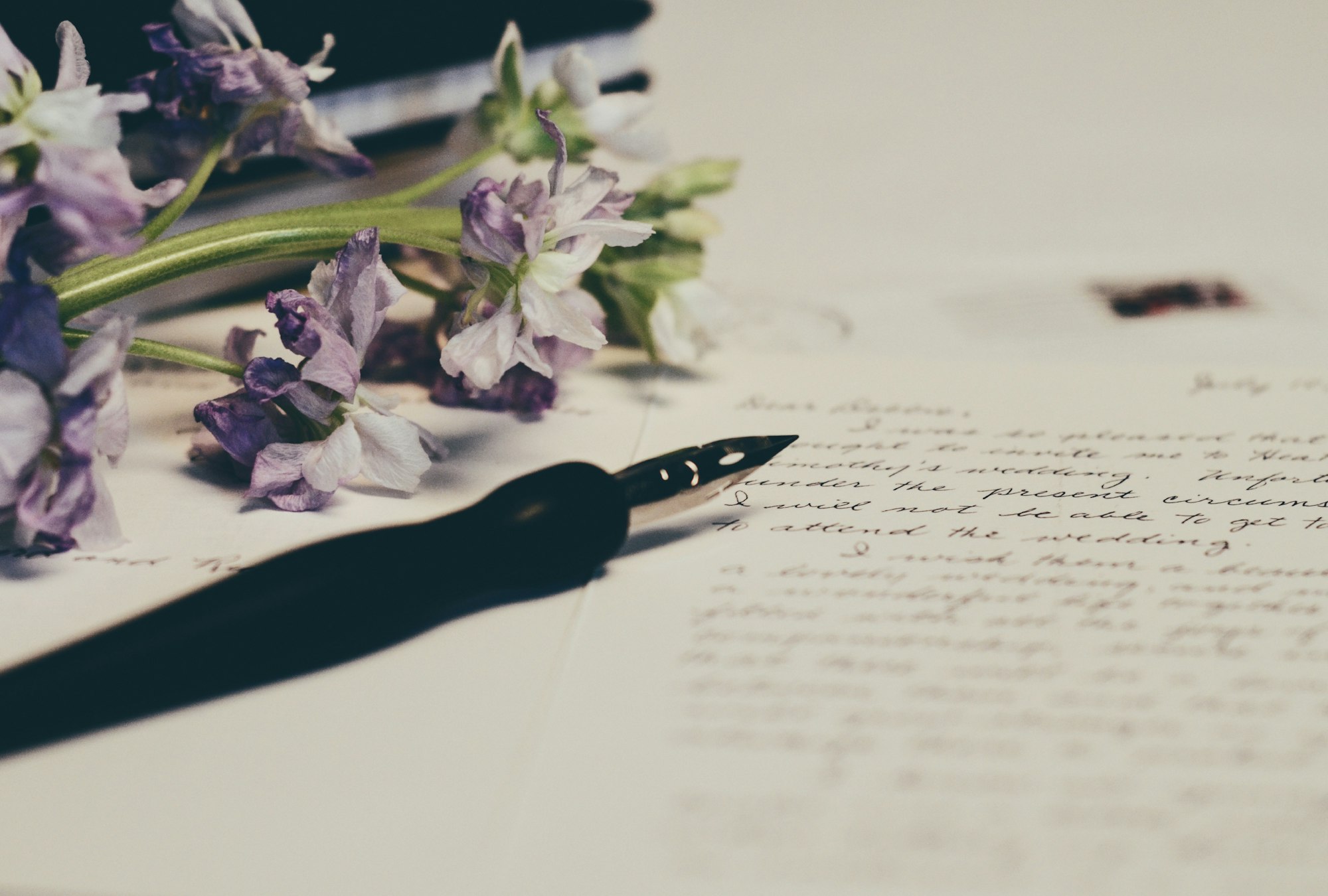Emily Dickinson, “A Letter is a joy of Earth” (1639)
Letters are not easy. I know this, but I write bad ones anyway.

Letters are not easy. I know this, but I write bad ones anyway.
This leads to questions. I suspect they are the same as yours. First, why write them? You read these beautiful letters from ages ago, where someone on the front lines of the Great War passionately expresses their hopes for the future while wrestling with a passage from Schiller. They are writing, of course, to someone who was a fusion of Audrey Hepburn and Jane Goodall, and that person will write back in a way which could be confused for Shakespeare's Henry V.
Obviously, I feel "why write them" lends itself to an overwrought, over-romanticized past. Still, it's not a past we can ignore. People did commit some amazing thoughts to those they loved. They preserved both their memories and said some things we would be wise to take seriously.
However, that brings forth the second question. Can you go into writing a letter with incredibly high expectations? Lots of people have: they knew their words could be scrutinized. They wanted to cultivate a good impression and give something of value.
But what about you? What about me? What goes into writing a letter for us? Regular people, not statesmen or jurists or artists of renown, who want to say something real? You know, to celebrate a letter as a "joy of Earth?"
A Letter is a joy of Earth (1639) Emily Dickinson A Letter is a joy of Earth — It is denied the Gods —
When I reflect on Dickinson's "joy of Earth," I have to believe that times truly have changed. The letters we gravitate to are letters which have become literature. They have a depth of their own, sometimes only relative to other works of literature. There are plenty of times we communicate in everyday life which have a profundity we need. For me, this occurs over the telephone. National issues and trends set a tone, a "vibe." It's easy to pretend they don't affect us, that the news is just stuff on television. Over the telephone, family, friends, and I piece together what we're seeing. It isn't hard to identify the rage and insecurity all around us. What's wild is realizing we wouldn't understand this if we didn't take a few moments to stop and consider.
"[A] joy of Earth," then, could be related to the need of understanding where we are at this time. An intellectual pleasure, you could say, maybe a comfort in the midst of uncertainty. However, Dickinson in her letters is not terribly subtle. This tweet captures the energy of a number of her letters, if not an actual statement:
"i tore open your letter and licked the envelope's seal for any lingering taste of you" pic.twitter.com/qiykX7drzu
— paloma 🏹🌿 (@bieuphoriaa) January 16, 2022
For those generations without the ability to instantly communicate across distances, letters demonstrate authenticity. You take the time to say what you value and desire. You are literally unfolded. I don't know that we can demonstrate authenticity in the same way nowadays. The very means of communication receive different values from different people. For example, I don't doubt that "ghosting" and social media are directly related. It's easy to ignore someone while pretending to pay attention to them: you can "like" the content they post or share the occasional meme. Or not acknowledge them for months and then ask a question.
The question for us, then, is how we can create a "Letter," "a joy of Earth... / ...denied the Gods." Weirdly, this means committing to how we communicate, not taking any of it for granted. That's a strange ask when social media companies will delete our old content to free up space. When we've spent time on a website snarking more than communicating. But "a joy of Earth" "denied the Gods" is discovering and declaring who we are. That can only happen if we are aware of what tools we have to do that.
